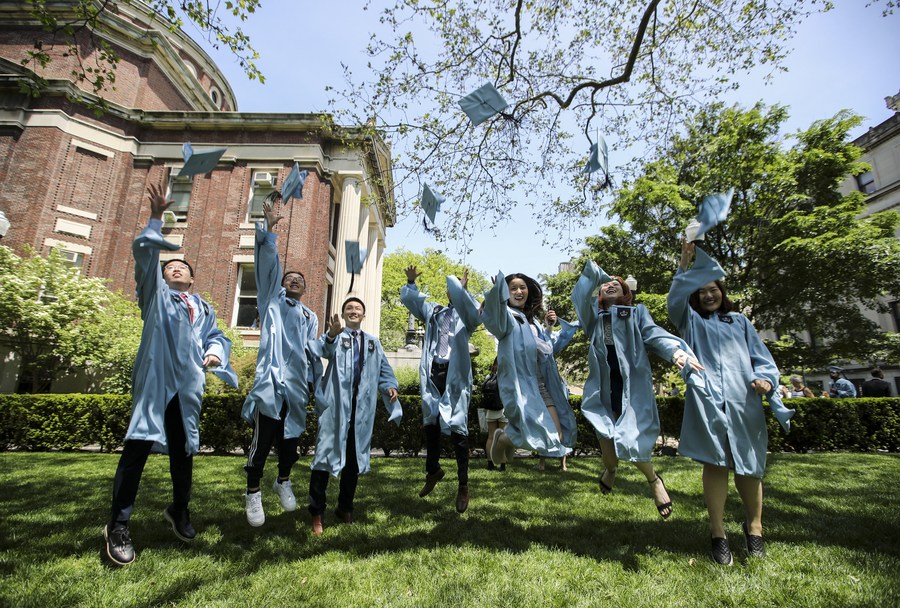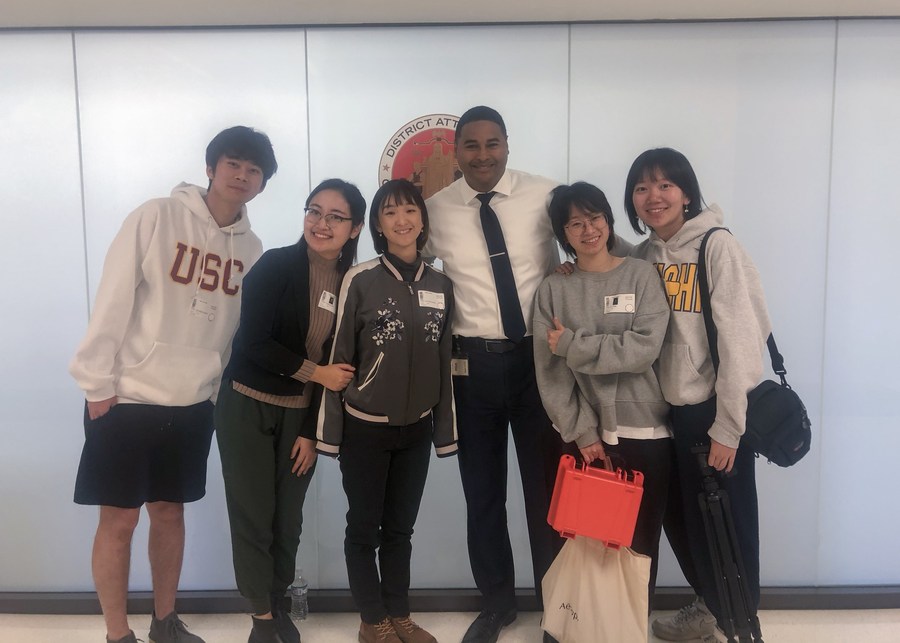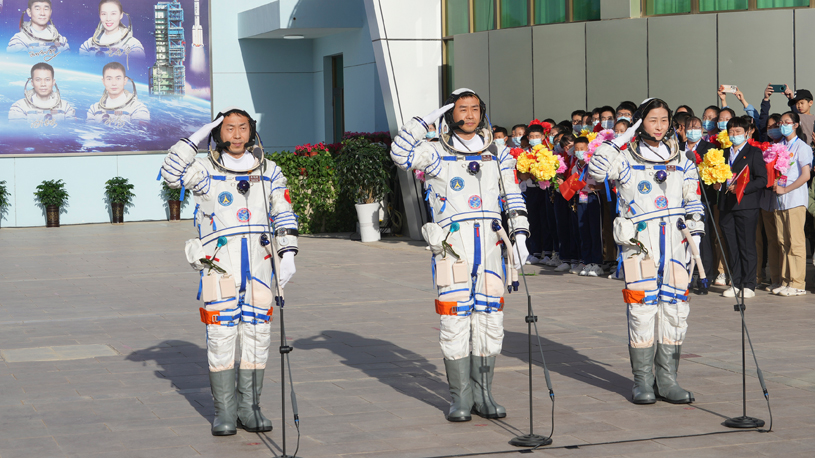
Graduate students from China pose for photos on campus after the Columbia University Commencement ceremony in New York, the United States, May 22, 2019. (Xinhua/Wang Ying)
"That's an incredibly important ballast in the U.S.-China relationship that helps to have both sides better understand where the other side is coming from," said Neysun A. Mahboubi, a research scholar of the Center for the Study of Contemporary China at the University of Pennsylvania.
by Xinhua writers Sun Ding, Hu Yousong
WASHINGTON, June 5 (Xinhua) -- Academic exchange between the United States and China has brought benefits to both sides and needs to continue in the future, an American scholar has said.
"That's an incredibly important ballast in the U.S.-China relationship that helps to have both sides better understand where the other side is coming from," said Neysun A. Mahboubi, a research scholar of the Center for the Study of Contemporary China at the University of Pennsylvania, during a virtual interview with Xinhua.
"There are lots of different pathways in which that kind of exchange can generate that knowledge that gets percolated both within the Chinese side or within the U.S. side," he stressed. "I actually can say with some degree of sincerity that there is a strong win-win component to academic exchange."
"Unless you are actually talking to people and understanding how things look from their perspective, you're gonna have a much more limited understanding," he pointed out. "For me, what drives me is I wanna better understand things, and to better understand things, you have to have exchange."
A fraught relationship between the United States and China -- along with the stubborn COVID-19 pandemic -- has posed challenges to academic exchange and cooperation between the two sides over the past few years.
With the U.S. side increasingly fixated on the competition with China, there is emerging concern in academia that the decades-old practice could be further impacted.

Photo taken by Chen Yucong, a 2020 Student Academy Awards gold medal recipient, shows Chen (2nd L) and her cast members pose for a photo with Los Angeles County Deputy District Attorney John McKinney in Los Angeles, the United States, Feb. 7, 2020. (Xinhua)
"I am very keen that we continue to find ways to have the robust and productive academic dialogues that we have had and enjoyed for much of the last 40 years," he added. "I am very hopeful that we can get back to the kinds of robust, ongoing, systematic exchange between the two sides. That, as a scholar I think, has intrinsic scholarly value. But beyond that, I think it's incredibly important in a large instrumental way for the stability and health of the U.S.-China relationship."
Mahboubi, who has long contributed to the exchange between American and Chinese scholars, also shed light on the negativity of dwindling academic interaction.
"Some of the ways in which we've seen disagreements materialize over the last couple of years and sharpen the last couple of years are directly a function of the ways in which the two sides don't understand each other as well because we don't have those kinds of exchanges," the scholar said.
Besides, Mahboubi told Xinhua that the notion of "great power competition" between the United States and China is in general "not the kind of language that I comfortably use," saying that he prefers to analyze the bilateral relationship by using the framework that "these are the two largest economies, both with substantial interests around the world, both with shared interests in stability of global institutions -- including both economic and security."
"We are all very clear about all the differences but I think it's important to underscore the areas of commonality as well, both in terms of the things that we often talk about, in terms of climate and health and those kinds of issues, but even more broadly, just in stability of global institutions, these are both countries that are doing well under the rules of the current game of the global order," he observed.
"I think neither country particularly interested in the global order changing in some dramatic way," he added. ■












